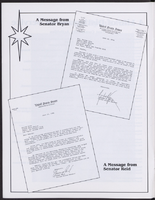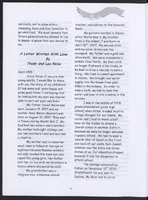Search the Special Collections and Archives Portal
Search Results

Interview with Benjamin Clinton Diven, March 10, 2004
Date
2004-03-10
Archival Collection
Description
Narrator affiliation: Physicist, Los Alamos National Laboratory; Manhattan Project
Text

Holocaust Education Conference program, 1997
Date
1997
Archival Collection
Description
Booklet program from the Holocaust Education Conference, 1997.
Text
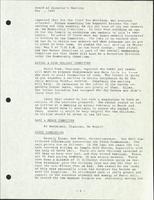
Minutes from Temple Beth Sholom Board of Directors meetings, June 1987 - May 1988 (1 of 2)
Date
1987 to 1988
Archival Collection
Description
Minutes from Temple Beth Sholom Board of Directors meetings, June 1987 - May 1988 (1 of 2)
Text
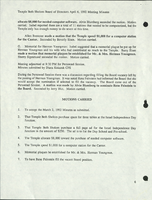
Minutes from Temple Beth Sholom Board of Directors meetings, April 1992 - August 1992
Date
1992
Archival Collection
Description
Meeting minutes include reports from committees of the board, correspondence, and balance sheets.
Text
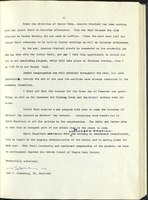
Minutes from Temple Beth Sholom Board of Directors meetings, May 1974 - May 1975
Date
1974 to 1975
Archival Collection
Description
The meeting minutes of the board of directors of Temple Beth Sholom include the proceedings of meetings held from 1973 to 1974.
Text
Pagination
Refine my results
Content Type
Creator or Contributor
Subject
Archival Collection
Digital Project
Resource Type
Year
Material Type
Place
Language
Records Classification



